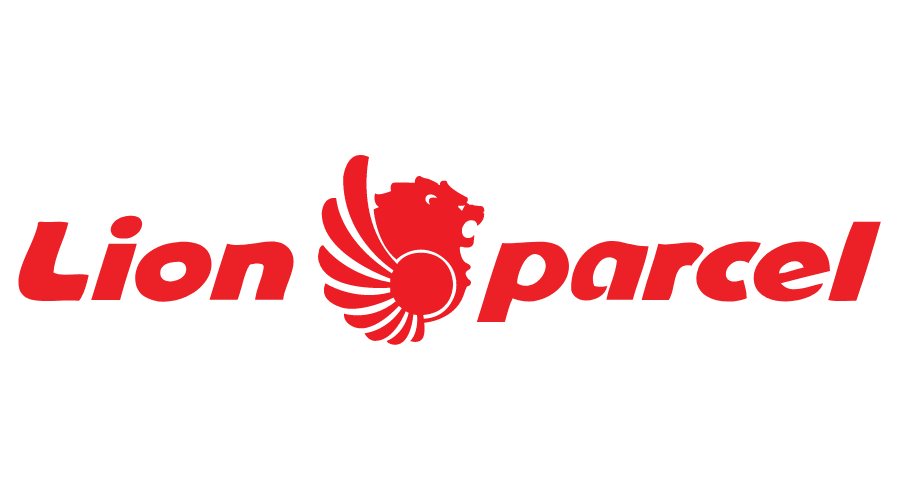Kategori
- SOLUTIONS
- OMNI CONTACT CENTER
- HOSTED | CLOUD PBX
- SIP TRUNKING
- SOLUSI HEMAT TELEPON
- IP PBX AND APPLIANCES
- IP PHONE
- CORDLESS IP PHONE
- WIFI IP PHONE
- VIDEO IP PHONE
- GIGABIT IP PHONE
- VIDEO CONFERENCE
- CONFERENCE CAMERA
- INTERACTIVE BOARD
- CONFERENCE PHONE
- CONFERENCE SYSTEM
- HEADSET
- VOIP GATEWAY
- ISDN E1 GW | CONVERT
- GSM GATEWAY
- IP INTERCOM
- IP PAGING
- NETWORK SWITCH
- WI-TEK
- Unmanaged PoE Switch
- Unmanaged ETH Switch
- Managed PoE Switch
- Reverse PoE Switch
- Passive PoE Switch
- No-Break PoE Switch
- Auto-Sense PoE Switch
- Cloud Mesh AP
- Cloud Mesh WiFi 6 Router
- Cloud L2 Managed PoE Switch
- Cloud L2 Managed Fiber Aggregation Switch
- Cloud Platform
- Mobile Cloud APP
- Cloud Mesh WiFi 6 Router
- Cloud L2 Managed PoE Switch
- Cloud L2 Managed Fiber Aggregation Switch
- Cloud Easy Smart Managed PoE Switch
- 4G LTE Outdoor CPE
- 4G LTE Indoor Wi-Fi Router
- UPS No-Break Solar PoE Switch
- Smart IoT Box
- Smart PoE Tech for WISP
- Outdoor Waterproof PoE Switch
- PoE Switch for CCTV
- Hi-PoE Long-Range PoE Switch for CCTV
- Fiber PoE Switch
- Full Gigabit PoE Switch
- SNMP Managed Gigabit PoE Switch
- Gigabit Ethernet Switch
- 2.5G/10G SWITCH
- Easy Smart Ethernet Switch
- Easy Smart PoE Switch
- Hardened PoE Switch
- Industrial Cloud Switch
- Superic Industrial Switch
- Mixed Industrial PoE Switch
- Boost Voltage Industrial PoE Switch
- 90W PoE Switch/PoE Injector/PoE Splitter
- Waterproof Industrial PoE Extender/PoE Inejctor/PoE Splitter
- PoE Injector,Splitter and Extender
- Gigabit SFP Fiber module
- Wireless Long-Range Transmit for CCTV IP Camera
- Fiber Optical Transceiver
- Indoor and Outdoor Cloud AP
- Cloud AP Controller/Enterprise Load Balance Gateway
- 3-10KM Long-Range Outdoor CPE for WISP
- 10-30KM Long-Range Outdoor CPE for WISP
- 24V Reverse PoE Switch
- SNMP Managed Gigabit Reverse PoE Switch
- Fiber Ethernet Switch
- SNMP Managed Gigabit Ethernet Switch
- GPON ONU PoE Switch
- HIMAX
- PROCET
- INDUSTRIAL POE Switch
- POE SWITCH
- GIGABIT ETH Switch
- OUTDOOR POE SWITCH
- HRUI
- WI-TEK
- WIRELESS AP
- CCTV | SURVEILLANCE
- SERVERS
- FIBER OPTIC & 3 PLAY
- ROUTER
- IP CAMERA
- SERVICES
- PA SYSTEM

PT. DIVATEL PRATAMA
Menara Kuningan 6th Floor,
Jl. H.R. Rasuna Said Blok X-7 Kav.5,
Jakarta Selatan 12940
Telp.: 021-30022778 (Hunting)
0852 8940 4589 (Mobile/WA)
Email: [email protected]
 User Online
User Online
Today Accessed: 6782
Total Accessed: 520820
Your IP: 216.73.216.164, 216.73.216.164
Conquering 6 Common Fears of Upgrading a Legacy Phone System
written by at 2020-07-25
Have you ever reconsidered your business phone system? Chances are that you have noticed a few inherent shortcomings if you are still using a legacy phone system. Maybe the equipment is old and worn, or you have to invest more on the maintenance, or the limited functionality fails to satisfy the increasing business needs.
As large telecom companies around the world successively announcing to switch off ISDN and PSTN, more and more businesses start to consider moving from their traditional business phone systems to the IP-based ones. All the signs suggest that VoIP is dominating business communications.
Even so, switching to VoIP is a daunting decision for some businesses. Although they have already been aware of the benefits of upgrading, there are still some fears and misconceptions around VoIP holding them back. Here are top 6 concerns about upgrading a legacy phone system and why there’s nothing to worry about it.
1. It takes a lot of time and efforts to install the new phone system.
Forget about the lengthy installation and massive overhaul of the current system. That is not the case for adopting VoIP. Compared to traditional phone systems that require lots of cables, you only need the Internet connection to keep a VoIP system running and most providers will offer simple installation instructions, necessary training, and technical support to make sure a painless migration. Besides, the majority of VoIP devices come pre-configured for plug and play, and all you need to do is to connect them to your network. You will have flexible network choices including PSTN lines, VoIP/SIP lines, PRI circuits, GSM trunks or a combination of them all. No hassle, just a smooth transition to a more feature-rich system.
2. It is costly to upgrading a legacy phone system.
Installing a traditional phone network is laborious and expensive, but upgrading from a legacy phone system to a VoIP solution actually saves you substantial investments in the long run. In most cases, by leveraging VoIP gateways, you can preserve existing equipment and use them along with the new VoIP system. As VoIP routes calls through the Internet, you need not pay for the copper lines which a traditional phone system requires to function. If you opt for a cloud-based solution, there is even no need to maintain the hardware and no installation involved.
VoIP is inexpensive to start with and will reduce your monthly bills as well. Numbers don’t lie:
- VoIP can trim down initial costs for startup business by roughly 90%. (Tech.co)
- Small businesses using VoIP can decrease the cost of local calls up to 40% and international costs by 90%. (Tech.co)
- Businesses that use softphones can save an average of $1727 per month on mobile phone and long-distance costs. (visual.ly)
3. The audio quality of VoIP is not good enough.
This is probably the biggest misconception about VoIP. Well, in some cases it’s actually true. Not all VoIP systems are created equal in quality. The audio quality of VoIP might be affected by the bandwidth and the device used. However, most VoIP providers offer a vast number of different protocols and codecs to ensure HD sound quality. So with a robust solution and proper implementation, the call quality of VoIP can be as good or even better than the landline-based calls. You can’t even tell the difference.
4. It requires advanced technical expertise to manage the system.
Many VoIP providers offer web access so that business customers can see and manage every aspect of their phone system, from call features to account information. For example, Yeastar PBX System has an intuitive web GUI to help you get started in minutes. Your IT administrator can easily manage user accounts while each user controls individual settings. If you opt for hosted or managed VoIP service, the service providers will take care of almost everything. It’s also a misconception that hosted phone systems take away control over how your organization wants to configure the phone network. Most service providers make it easy for you to make alterations with just a few clicks.
5. VoIP is not as reliable and secure as legacy phone systems.
A lot of people are wary of VoIP because it runs over the Internet. Actually, a reliable service provider will check the speed and reliability of your Internet connection and have a redundancy plan in place in case of the rare service interruption. As for security, VoIP leverages modern security technologies like firewalls, encryption, authentication, blacklist & white list, etc. to make it even more secure than PSTN and ISDN. As long as your network is secure, your VoIP lines are secure.
6. VoIP doesn’t make that much of a difference.
VoIP systems unify employees under one cohesive phone system. Ever heard of BOYD mobility? The credit goes to VoIP. A VoIP solution is able to allow users to make and receive business calls anywhere anytime with Internet-connected desktops or mobile devices, which greatly empowers employees working from home and on the go. Besides, VoIP also allows for a number of 3rd party integration, such as call center, CRM, CTI, PMS and more, and even custom integration with API, which will extend the functionality to cater to more specific needs.
VoIP is suitable for companies of any size thanks to its scalability. For small businesses, they can even enjoy enterprise-grade features at a fraction of costs. Not moving your outdated business phone system to a VoIP or cloud-based solution with unified communications capabilities actually means the potential loss of amazing benefits and advanced features. What’s more, for companies that have a remote workforce and multiple branch offices, a legacy phone system does hinder communication efficiency and productivity. As the PSTN not going to be around for long, VoIP will eventually be the only option and the matter of necessity when your current phone system stops working one day. Why not be proactive and reap the benefits in advance?
Does this post demystify your concerns about upgrading and dispel some VoIP myths? If you have started to consider migration, take a look at these related resources and the comprehensive Buyer’s Guide that will help you make an informed decision.
Comments
 021-30022778
021-30022778
![]() SALES & MARKETING :
SALES & MARKETING :
Indra Ilham - Ext. 111
John - Ext. 110
DIVATEL - 0851-7306-0800
Ismed S. - 0852-8940-4589
Dipa A. - 0821-1063-2366
Indra Ilham - 0818-188-818-59
John - 0812-1070-3999
![]() INTERACTIVE DISPLAY :
INTERACTIVE DISPLAY :
Dharma - 0878-7753-7902
Carlo - 0878-8796-8114
![]() EMAIL :
EMAIL :
Keranjang Belanja
Diskon
-

Escene ES290PN
Rp 866.000 Rp 826.000
Produk baru
Dinstar UC200 Pro - IP PBX
- UC200 Pro is a powerful and reliable IP PBX designed to meet the...
Lebih lanjut Distributor Dinstar C60U-W IP Phone WiFi Murah Berkualitas Promo 2025
- Distributor Dinstar C60U-W IP Phone WiFi Murah Berkualitas Promo 2025...
Lebih lanjut Milesight MS-C5321-FPE — AI Multi-Sensor Multi-Directional Camera 4×5MP
- Dapatkan pengawasan 360° menyeluruh dengan Milesight MS-C5321-FPE,...
Lebih lanjut














































































Leave a comment